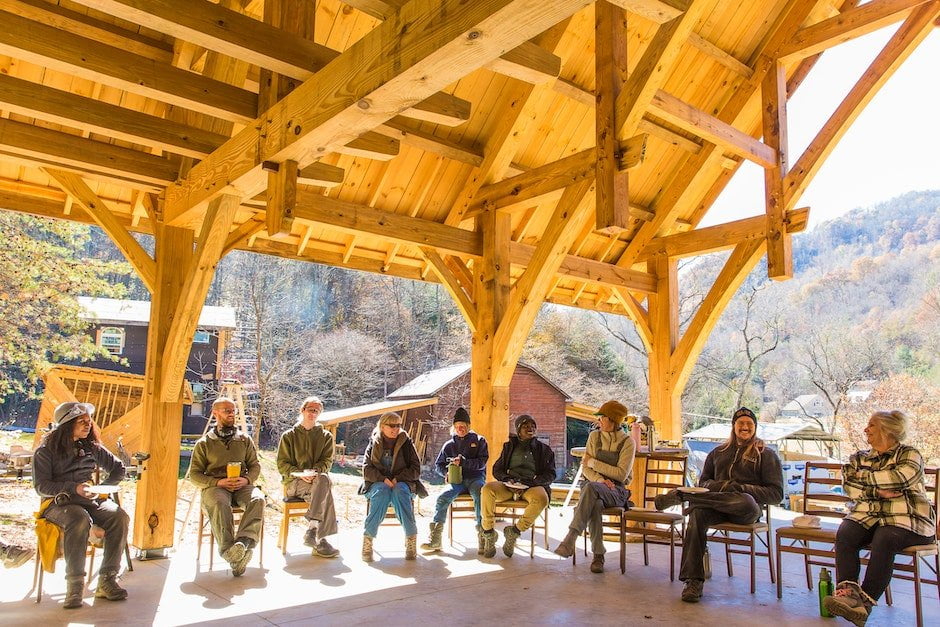Planning Your Trip
This page covers many aspects of planning your trip to Wild Abundance and the beautiful Southern Appalachian mountains. We hope it answers any questions you’re sitting with, and makes your journey here easier and more comfortable!
If you have other questions that aren’t answered here, feel free to reach out to us at admin@wildabundance.net. After you register for a class, you will receive our thorough and helpful student handbook, which goes into more details about all this and then some.
About the Asheville Area
Our classes take place at rural mountain campuses near Asheville, NC. Check the bottom of each class page for specific info on where a given class takes place. All of the building classes are based at the beautiful Paint Fork Campus, which is 30 minutes from downtown Asheville.
Our area is well known for incredible biodiversity throughout lush forests full of springs, creeks and rivers. The big town/small city of Asheville is a destination for folks who love the outdoors and offers lots to see and do, including dozens of hip and delicious restaurants, microbreweries, and music venues.
Upon registration, you’ll receive a list of restaurants and grocery stores we recommend, plus great hikes and other local activities in our very detailed student handbook.
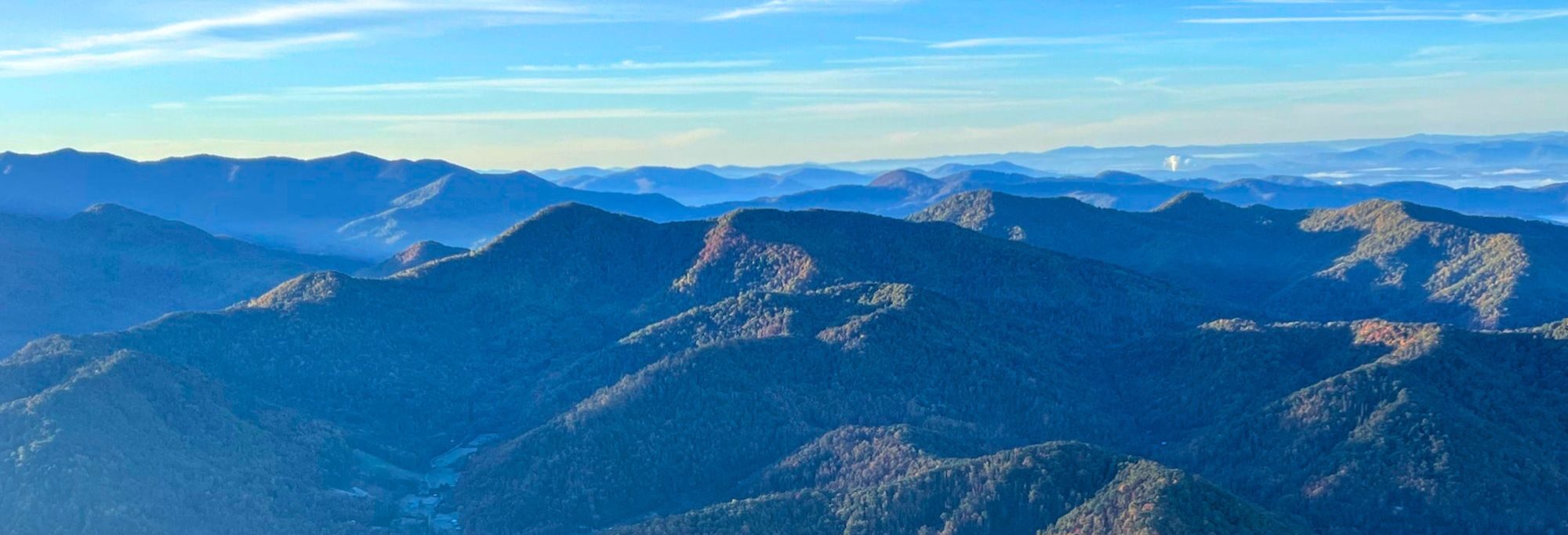

Transportation
Our two home campuses are 25-30 minutes from Asheville. They’re 40 minutes from the Asheville Regional Airport, and 2.5 hours from the Charlotte International Airport. Our sister campus, Earthaven Ecovillage (host for the Permaculture Design Course) is about 40 minutes from Asheville, 50 minutes from the Asheville airport, 2 hours from the Charlotte airport.
Public transportation does not come out to the campuses, but there are a variety of other ways to get here.
If you stay on campus and bring your own groceries to prepare, you won’t need a car during your class. You may want to run an errand or go out to dinner with fellow students, and if this happens, it’s highly likely that another student with a car will be happy to give you a lift.
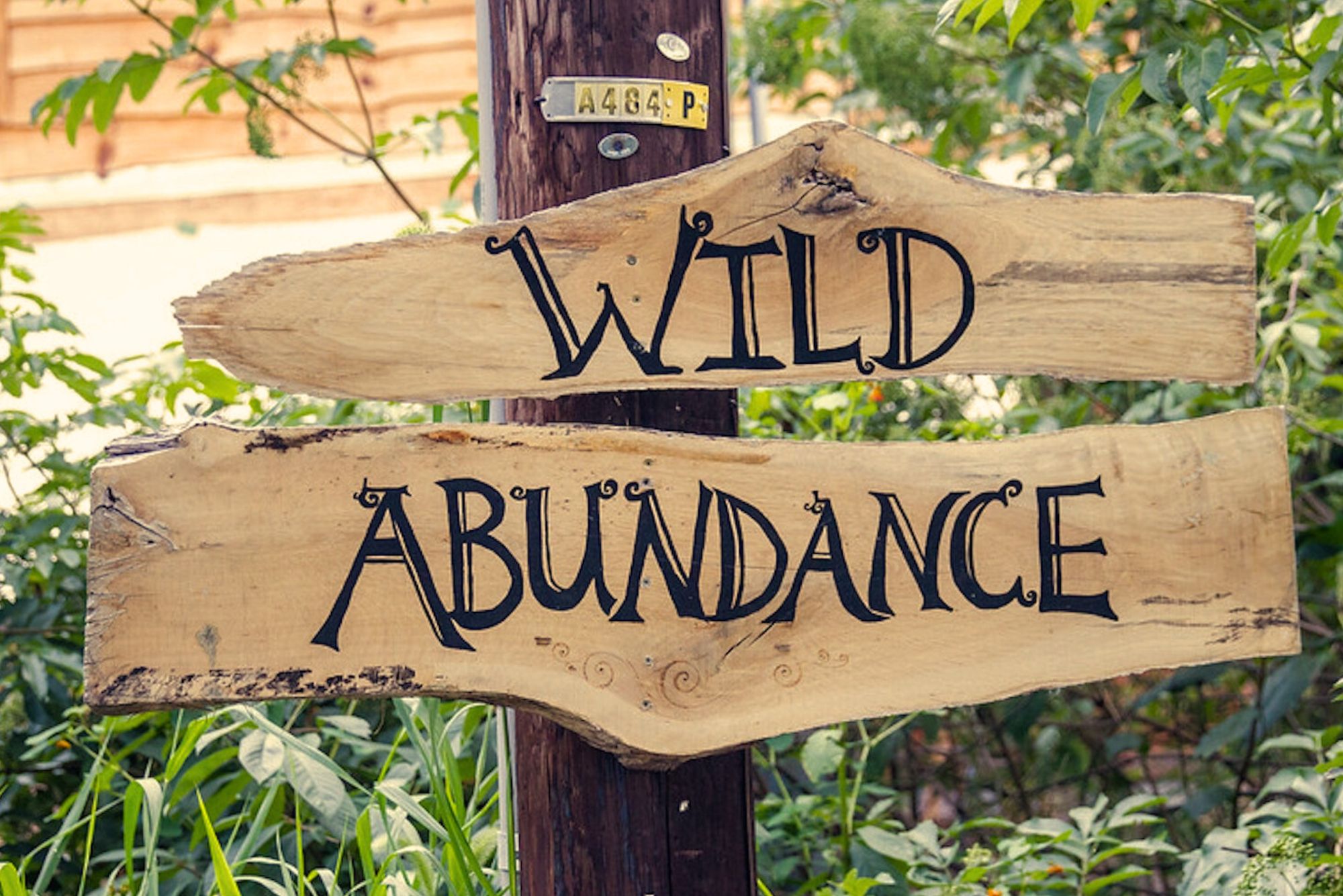

If you’re coming without a vehicle of your own, here are some transportation options:
- Hire a shuttle to bring you from the airport to our campus, with an optional grocery stop on the way. We’ll share contact info for local folks who offer this service for $50-$80 each way in the student handbook.
- Rent a car with a group of fellow students. This is a great way to save on the cost of transportation, and also build connections. Sharing a car generally works best for groups who will also be staying together. We share contact info for each class so you can get in touch and make plans together. Everyone has a chance to keep their info private if they choose.
- Rent a car on your own. The price range is currently between $45-$200/day
- Ride share apps like Uber and Lyft will drive you from the airport to our campuses. To get a ride back, make sure to schedule your ride in advance. These services generally have similar prices as the local folks listed in our student handbook, but don’t include a grocery store stop.
Onsite Facilities
All students have access to a lovely outdoor kitchen equipped with a stove, hot and cold running well water, plenty of counter space, plus pots and pans, knives and cutting boards, bowls, plates, and utensils. The kitchen is a place where students gather to prepare food, and also to eat food brought from elsewhere and to socialize.
Our private outdoor showers with hot water are also available to everyone and are lauded by some students as one of their favorite parts of staying here. Our outhouses are always clean and cozy.
We provide charging stations in the kitchen so everyone can keep their devices working (though many students enjoy “unplugging” for at least some of their time here).
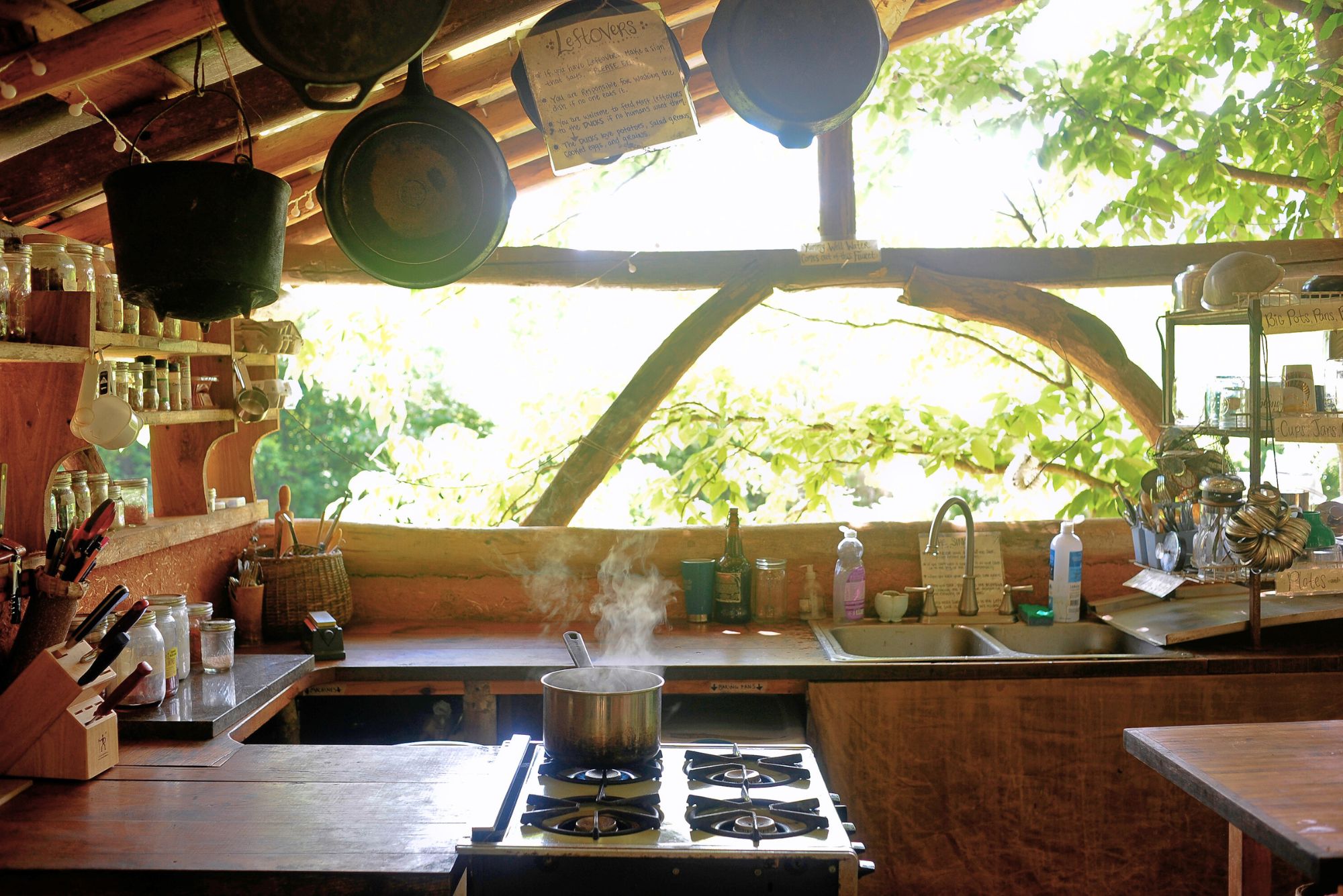

Accommodations and Lodging
You’ve got several options of where to stay during your class. Local students often commute from home, some students camp, and others choose to rent hotels or AirBnB’s with more creature comforts.
Free onsite camping (with your own warm bedding and rainproof tent or hammock) is available to all students (including locals) during classes. Some set-up-for-you tents are available with cots and cozy bedding for a fee at our Paint Fork campus only (this is where our carpentry and tiny house classes take place). Camping is a safe and comfortable option; no students have ever encountered bears during their stay.
If you’d rather rent a place, there are many available. We’ll share a curated list of recommended nearby options in your student handbook once you’ve registered.
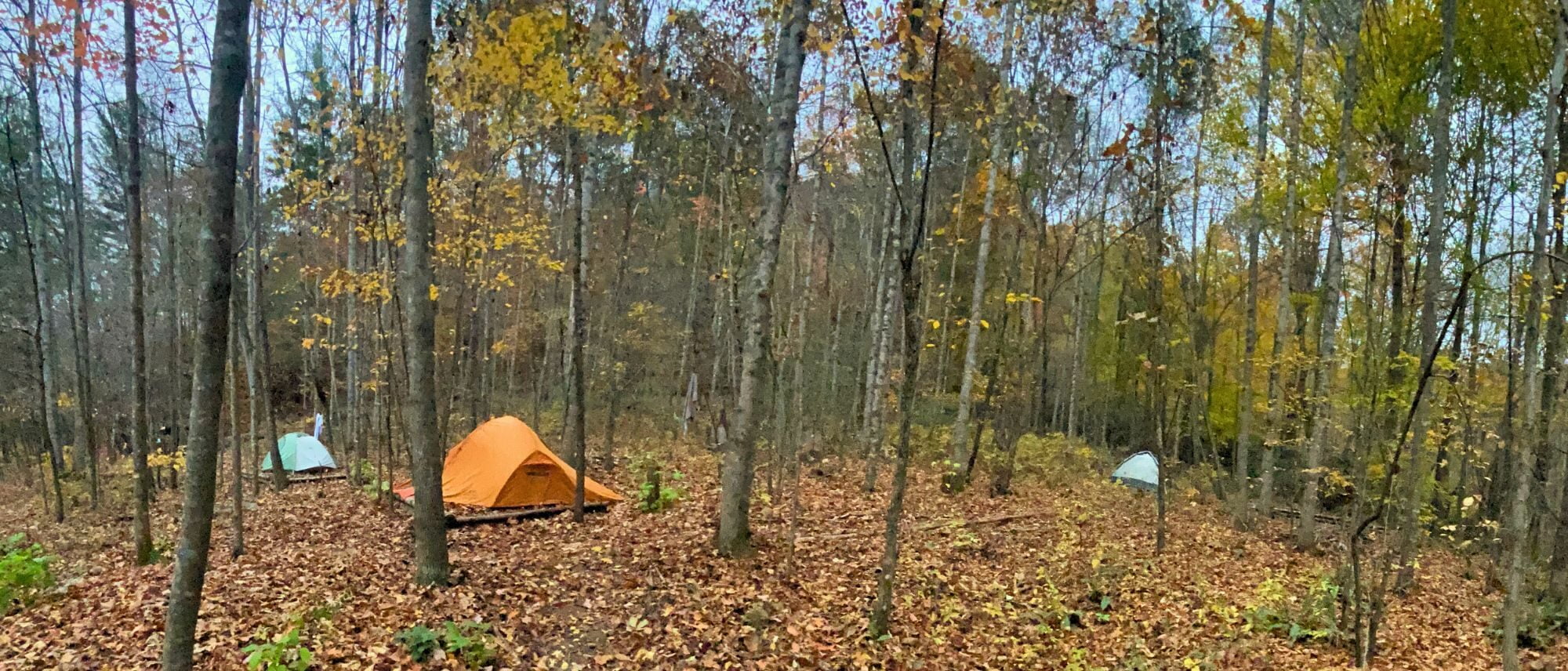

Here are the costs of different lodging options:
- Camping with your own gear: free
- Staying in a large tent with a cozy cot bedding that we set up for you: $200 flat fee; you can stay there anytime from 5pm before the first day of your class, to 12pm the day after your class ends (Available for carpentry and tiny house building classes at Paint Fork Campus only)
- On-campus enclosed or open-air options through AirBnB : $30-$65/night + fees (Available for Rewilding Retreat and Wildcrafted Apothecary Class at the Sanford Way Campus Only)
- Hyper-local off-campus single rentals: $40-$200/night + fees
- Hyper-local off-campus couples rentals: $20-100/person/night + fees
- Hyper-local off-campus group rentals: $25-$86/person/night + fees
- Semi-enclosed dorm-style camping cabin: $18/night (Available for Permaculture Design Course at Earthaven Only)
- In-village shared or private indoor accommodations: $25-$35/person/night (Available for Permaculture Design Course at Earthaven Only)
We will send you links to all of these options in your student handbook upon registration.
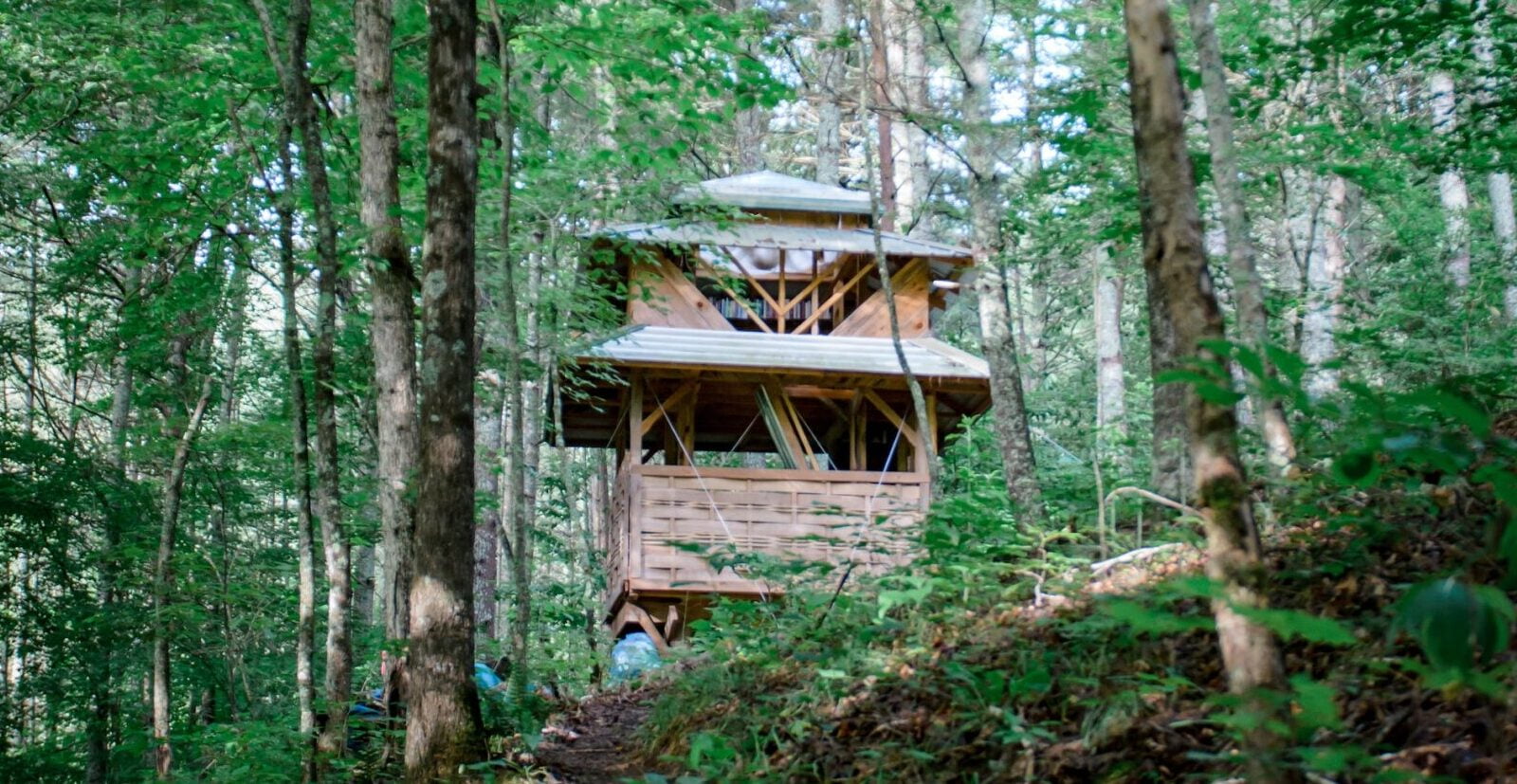

Food and Groceries
Food is not provided during most of our classes. The one exception to this is the PDC at Earthaven Ecovillage, which has a required meal plan because the site is located further from restaurants and grocery stores.
Everyone is responsible for their own meals throughout their class. We also strongly recommend that you bring snacks, especially for the building classes, as they are very active. Whether or not you’re camping here, you can use the outdoor kitchen to store and prepare food.
PLEASE NOTE: The Sanford Way campus DOES NOT have refrigeration on site and the Paint Fork campus DOES have refrigeration on site.
If you are coming to the Sanford Way campus for the Rewilding Retreat or Wildcrafted Apothecary Class, or if you have a lot of food and are coming to a building class (the fridge has limited space), please bring a cooler. We provide sturdy plastic bins to store non-perishable food away from critters like mice and raccoons in our outdoor kitchens.
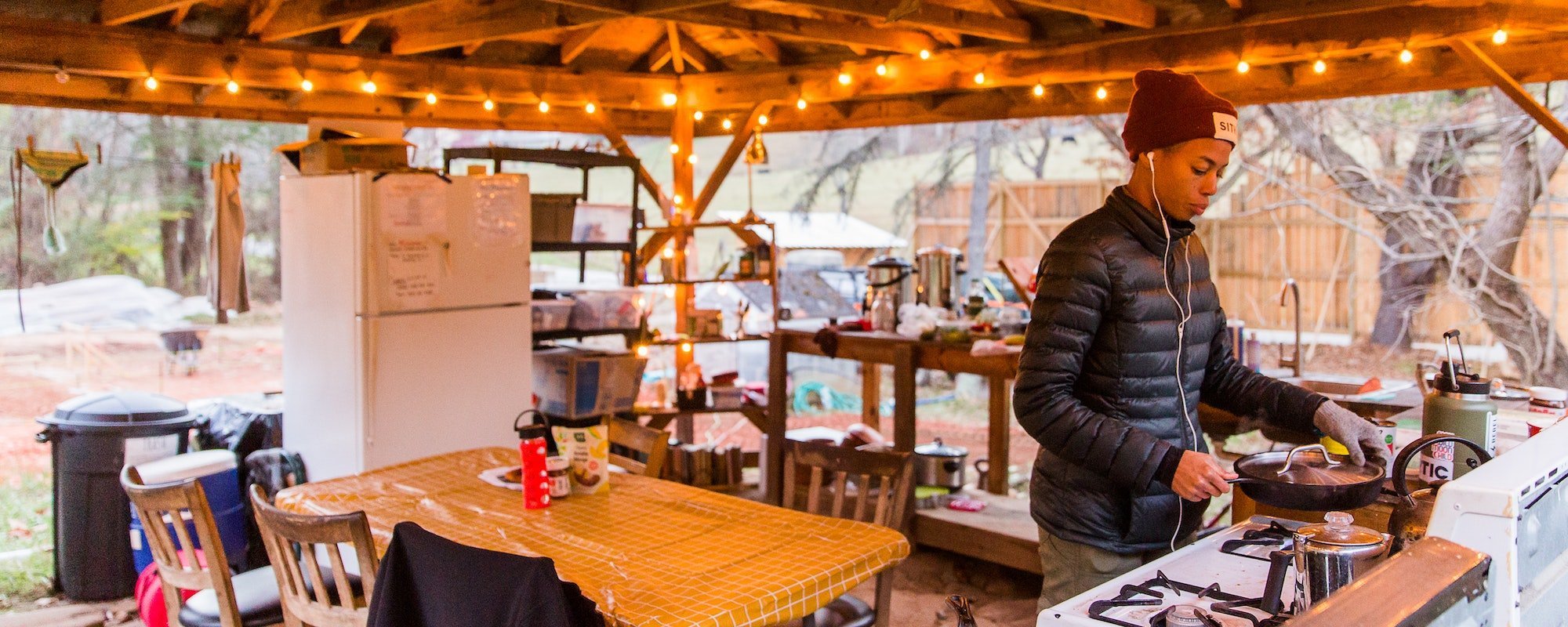

If you would like to leave campus to buy food, the closest option is in Democrat, NC where there is a convenience store and a greasy spoon type diner open for breakfast and lunch. This is within a very short (under 5 minute) drive. Sheena’s is another greasy spoon in Barnardsville, equally close, and they’re open for lunch and dinner.
Students often enjoy going to Weaverville or Asheville for dinners together after class. 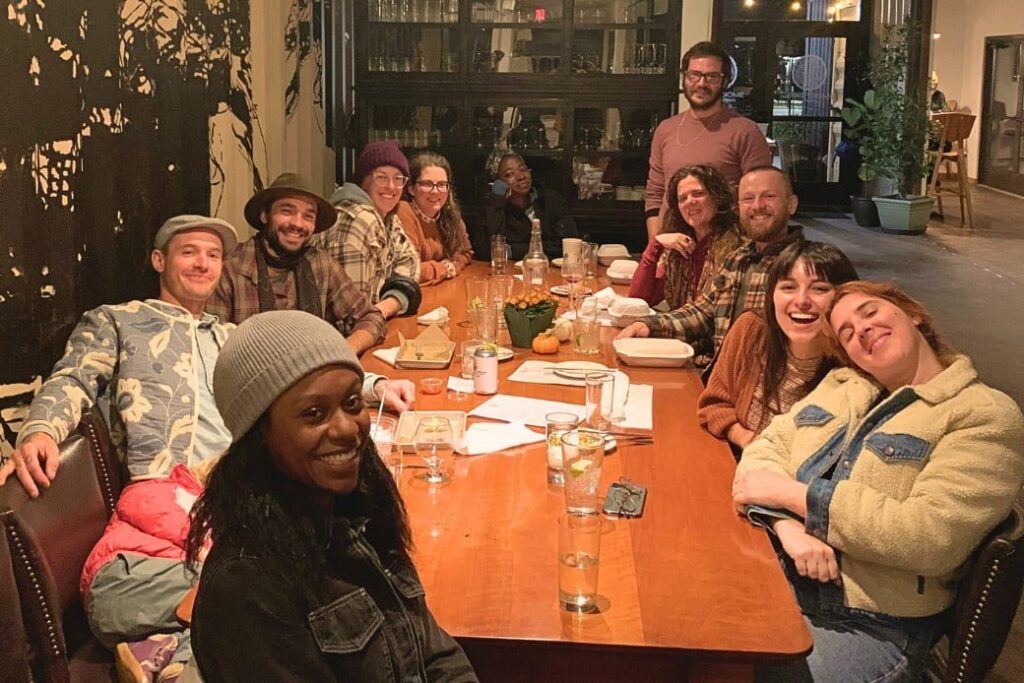

Weather and What to Bring
Wild Abundance is in the mountains, making weather here a bit different than the rest of the Southeast. During our class season (April through early November) it may get chilly at night in the spring and fall, and a bit sweaty during the day in the heat of summer, but overall our climate is quite pleasant. It cools down at night and isn’t as hot or humid as lower elevation southern cities. We are lucky to have minimal mosquitoes and other biting insects.
A week or so before your class, we suggest you check the local weather on an app like wunderground.com and pack/plan based on the most up-to-date predictions. Weather in the mountains is changeable! 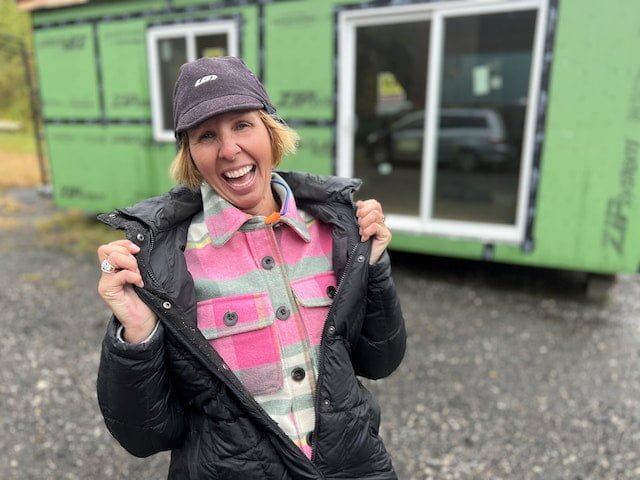

You’ll get a class-specific packing list upon registration, but in general it’s a good idea to bring comfortable, layered clothing (including warm layers in spring and fall), simple rain gear, a water bottle, snacks and food, a sunhat and/or sunglasses, comfortable all-terrain footwear that you don’t mind getting a little dirty (closed-toed if you are taking a building class) and whatever else you need to feel comfortable being outside in variable weather.
Childcare
If your teenager wants to join you as a student, contact us at admin@wildabundance.net to find out if the class is appropriate for them, it likely will be. If you need childcare for your kids, we will provide contacts for several local caregivers upon registration. 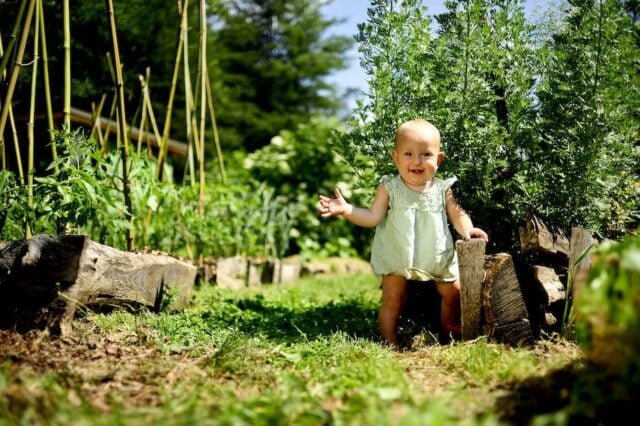

Community Expectations During Classes
We’re all about building community, but that doesn’t mean that you have to be super social or extroverted to participate in our classes. In fact, we believe that resilient communities need all kinds of people in order to thrive, and there’s not just one way to show up in a group.
If you’re more introverted, you’ll have a chance to take space during breaks and after class, and won’t be pressured to participate in group activities. During our programs we host opening and closing circles, along with Q&A sessions where everyone is invited to speak up, share about their experience, and bring their voice to the group. All of this is optional! We also have a question board where folks can simply write what’s on their mind if they don’t feel drawn to speaking in groups.
In order to keep our spaces orderly, and help students feel grounded and connected, we invite folks to sign up for small chores around campus during classes. These usually take about 5 minutes to complete, so there is still plenty of time to prepare food, take a walk, etc. outside of class time.
For those who are more outgoing, there are ample opportunities to chat and connect with fellow students who are also wanting that.
